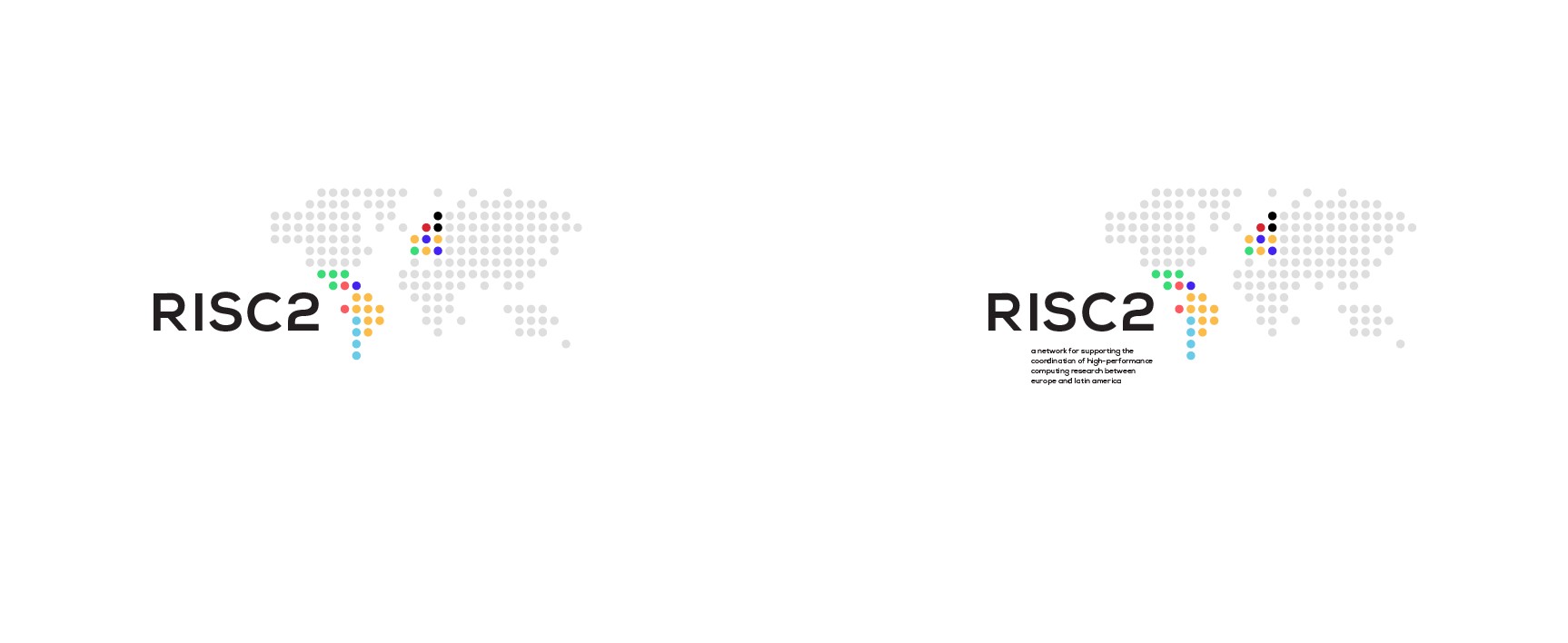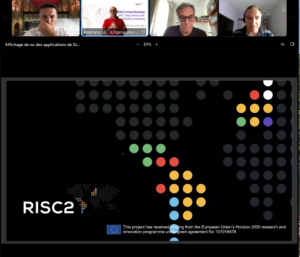The RISC2 project organized a virtual workshop dedicated to High-Performance Computing (HPC), data science and scientific computing. The workshop, which took place on June 22 and 23, was organized in the scope of the working group for a convergence between HPC, data science and large-scale scientific computing, proposed by Inria, LNCC and UFRJ/COPPE, partners of the project.
This first online workshop gathered 20 participants each day to discuss the main challenges for such a convergence and present ongoing related works. The workshop also aimed to foster more focused cooperation between partners.
The event was moderated by Stéphane Lanteri, from Inria, and had the participation of Daniele Lezzi, from Barcelona Supercomputing Center, António Tadeu Gomes and Kary Ocaña, from LNCC, José Moríñigo, from CIEMAT, Alvaro Coutinho, from Federal University of Rio de Janeiro, Marta Mattoso, from COPPE/Federal University of Rio de Janeiro, and Patrick Valduriez, from Inria.
Context
Data-intensive science requires the integration of two fairly different paradigms: high-performance computing (HPC) and data science. HPC (including large-scale scientific computing) is computer-centric and model-driven; it focuses on high performance of simulation applications, typically using powerful, yet expensive and energy consuming supercomputers, whereas data science (including Machine Learning) is data-centric and data-driven; it focuses on scalability and fault-tolerance of web and cloud applications using cost-effective clusters of commodity hardware.
The convergence between HPC and data science or, in its simplest form, big data, has been a recent topic of interest. Such convergence will include for instance, the simulations of physical problems modeled by partial differential equations (PDE) systems that in turn generate a huge amount of data. Another example is combining ML with simulation, which requires a change from typical datasets to scientific datasets, making scientific runtime data analysis necessary for monitoring the ML life cycle. One of the challenges when working with physics-aware ML is to reduce the training cost.
This convergence is already at the heart of ongoing research and development activities between Brazilian and French partners in the framework of the Inria Brasil partnership. It is also driving the recently launched Center of Excellence in Digital Transformation and Artificial Intelligence of the State of Rio de Janeiro.
Next event: The next workshop will be open to all participants and will take place during CARLA 2022 event (Porto Alegre, Brazil, September 26-30, 2022).
For the Workshop HPC and Data Sciences meets Scientific Computing, the Call
Call for papers is open until July 15: http://www.carla22.org/pages/workshops/hpcdatasciencesmeetscientificcomputing.html
———————————————————-
To know more about the Working Group: https://www.risc2-project.eu/2022/04/04/risc2-has-a-working-group-on-hpc-data-science-and-scientific-computing/

